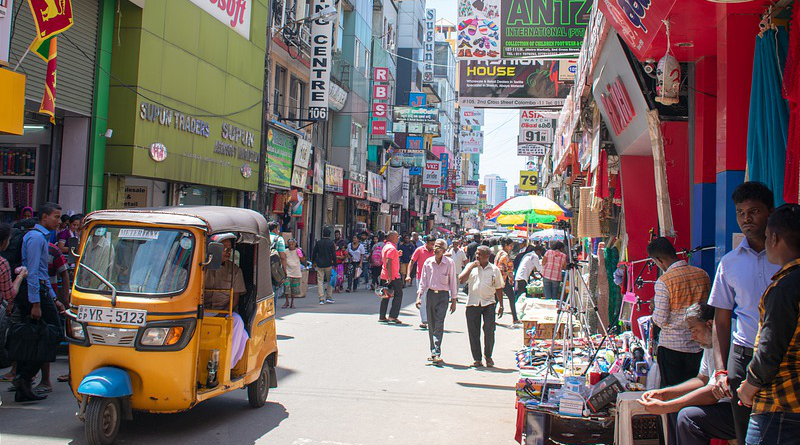Sri Lanka Cracks Down On Drugs In The Name Of ‘Justice’ – Analysis
By Amresh Gunasingham
Sri Lanka’s latest anti-drugs campaign, in which over 50,000 people have been arrested since late 2023, has come under scrutiny at home and abroad over mass arrests and detentions, particularly of young people.
Since the operation codenamed ‘Yukthiya’, or justice, commenced in December 2023, police and military personnel have conducted regular raids on homes and searched other locations around the country. This has led to narcotics seizures and mass arrests of drug consumers, local dealers, distributors and individuals with a history of drug-related arrests.
The Sri Lankan government has deemed the four-month-long crackdown a success so far, with over 58,000 arrests and drug seizures worth over US$20 million. But the tough approach adopted has also attracted criticism from the United Nations and domestic and international rights groups for alleged human rights violations.
Human rights observers say some people detained have been subjected to unauthorised searches, arbitrary arrests and detention. There have been allegations of torture and strip searches conducted in public by police officers and security forces. The United Nations has called on the Sri Lankan government to halt and review the operation and shift towards policies underpinned by health and human rights.
But the country’s Public Security Minister, Tiran Alles, has dismissed these concerns, stating that law enforcement has followed due process in conducting the arrests. He has also challenged the United Nations to identify specific instances of abuse. Alles added that the operations will continue over the next few months to eradicate the trafficking and distribution networks around Sri Lanka.
Government officials state that the authorities have been compelled crack down on drugs amid public complaints of increased usage by Sri Lanka’s youth and rising crime rates. Of the 50,000 people arrested and questioned to date, around 5000 have been jailed.
The anti-drug bust by the 2024 Ranil Wickremesinghe-led government is the latest attempt to address the country’s systemic drug problem. His predecessors, Mahinda Rajapaksa and Maithripala Sirisena, initiated similar anti-narcotics and crime campaigns, but these only resulted in short-term drops in crime rates.
Opposition politicians have claimed the recent operation is an attempt to garner popular support ahead of pivotal presidential elections slated for late 2024.
While such operations often target consumers and middlemen involved in international trafficking networks, several drug lords and their associates remain at large. Some operate in safe havens abroad, such as Dubai, despite recent arrests. Others are thought to continue to benefit from close ties with senior government officials and large businesses in Sri Lanka.
Amid the country’s economic downturn and ongoing austerity measures, Sri Lanka struggles with corruption among some law enforcement officials. Some officials have been paid off by crime syndicates to steal significant narcotic seizures, which are then distributed around the country, as security sources interviewed by the author allege.
For years, Sri Lanka has been a transit hub for drug trafficking due to its location near major drug trafficking routes along the Indian Ocean. Pakistan, Myanmar and Afghanistan appear to be the main sources of drug imports into Sri Lanka — mainly of heroin and synthetic drugs such as methamphetamine. Cannabis trafficking is also rampant in the international waters off Tamil Nadu in India.
According to law enforcement, rather than a transit hub for narcotics, most of the drugs coming into Sri Lanka are for domestic consumption. The government estimates there are around 100,000 known heroin addicts and a further 50,000 methamphetamine users in the country.
Observers have highlighted the disproportionate impact of police operations on drug abusers from poor socio-economic backgrounds. According to reports, some people have been arbitrarily detained, including in rehabilitation centres run by the military. This situation often affects families’ ability to sustain themselves amid the country’s ongoing economic crisis.
The government’s actions must be partly understood as a response to significant public concern over the social ills caused by drug abuse in Sri Lanka. Anecdotal evidence also suggests that countries that strictly enforce laws against drug production and distribution have made the most headway in dealing with the issue.
While effective law enforcement is required to combat drugs and crime rates, it is often a reactive measure. A more sustainable strategy is to combine targeted security operations with efforts to address the socio-economic drivers underpinning the issue. More public awareness is needed of the adverse effects of drug usage, including health issues, breakdown of family structures and economic downturn.
Successive administrations in Sri Lanka going back decades have implemented a range of measures to effectively combat drug abuse and trafficking. These include law enforcement, as well as programs for drug prevention and rehabilitation. Yet, challenges remain in addressing the key drivers of drug abuse and dismantling sophisticated trafficking networks.
Given criticisms that Sri Lanka’s ongoing drug operation is nothing more than a staged spectacle to boost government ratings, instances of torture, ill treatment and arbitrary detentions should be investigated and effectively addressed. Authorities should increase collaboration with the international community to identify and arrest large-scale traffickers.
- About the author: Amresh Lavan Gunasingham is Associate Editor at the International Centre for Political Violence and Terrorism Research (ICPVTR) at the S Rajaratnam School of International Studies (RSIS), Nanyang Technological University (NTU), Singapore.
- Source: This article was published by East Asia Forum

